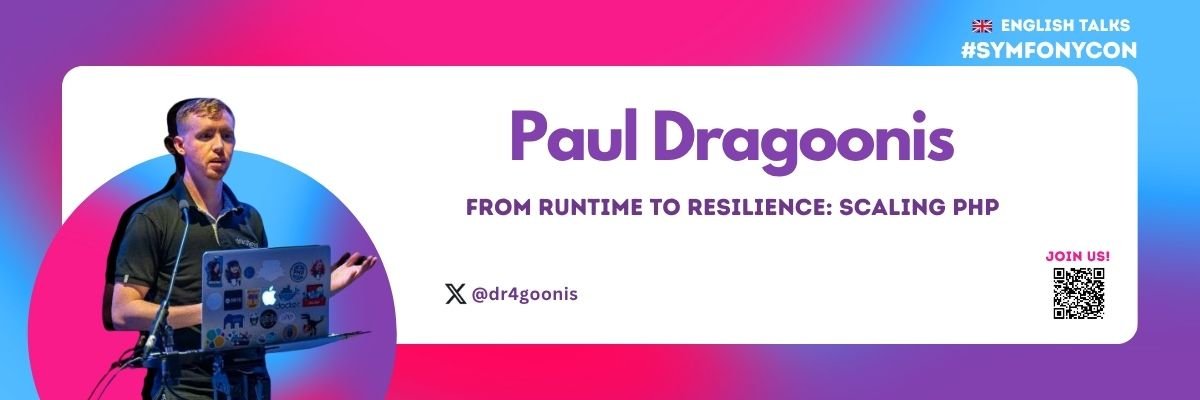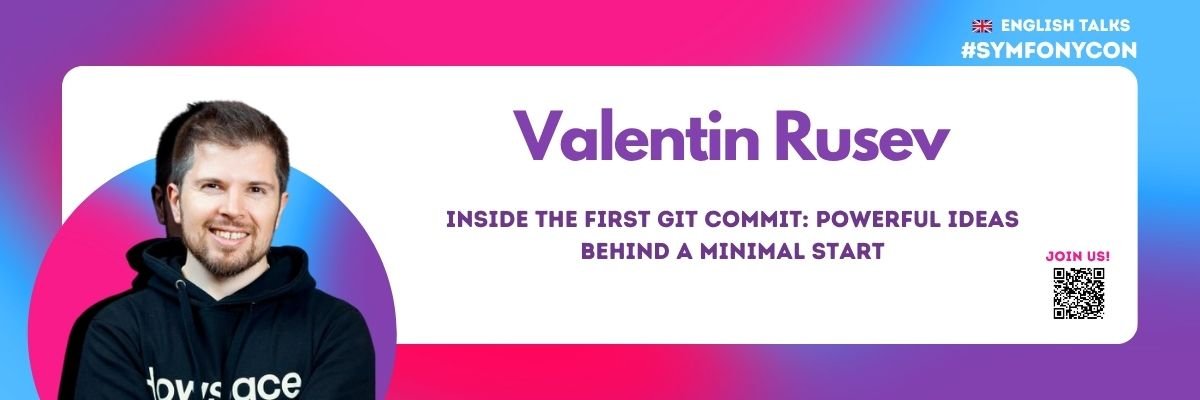
SymfonyCon Amsterdam 2025, our next annual international Symfony conference, will take place on:
- November 25 & 26 with two days of hands-on workshops to learn, practice, and enhance your skills in small groups.
- November 27 & 28 with three English-speaking tracks, an Unconference track, and a lively community evening.
The schedule is available here, as well as the complete list of workshop topics.
Stay in the look out for more to come!👀
🎤 New speaker announcement!
We’re thrilled to welcome Benjamin Eberlei (@beberlei@phpc.social), Chief Performance Detective, Tideways GmbH, as a speaker with the talk “How native lazy objects will change Doctrine and Symfony forever”
"Starting with PHP 8.4 you can implement lazy loading and proxy objects with native PHP functionality with little overhead and no code generation required. Both Doctrine and Symfony are historically using the proxy pattern with solutions and workarounds built in PHP. In this talk I will explain PHPs 8.4s native lazy objects and how it will be a game changer to both Doctrine and Symfony going forward."
SymfonyCon Amsterdam 2025 is coming fast!
🎟️ Register now and choose the ticket that suits you the best among workshop, conference and combo ticket. Check all the details and get your ticket!
🖥️ Check out the exciting 13 workshop topics on this page.
🎤 Explore the great lineup of conference talks here, featuring top-notch expert speakers as Fabien Potencier, Christopher Hertel, Robin Chalas, Tobias Nyholm, Andreas Braun, Anna Filina, Pauline Vos, Stefan Koopmanschap, Nicolas Grekas, Iain Cambridge, Sebastian Bergmann, Konrad Oboza, Alexandre Salome, Antoine Bluchet, Kévin Dunglas, Rob Allen, Mathias Arlaud, Benjamin Eberlei, Viktor Pikaev, Valentin Rusev Valentin Rusev, Romain Neutron and many others...
🫵 Participate in the Unconference track, a participant-driven format where attendees shape the content and discussions in real-time. Have a topic you're passionate about? Claim your slot by emailing us at events@symfony.com and set the stage for an unforgettable experience. Each unconference talk lasts 20 minutes with a screen and projector available on both days.
🎉 Celebrate Symfony’s 20th Anniversary with us at the Kanarie Club! Join us for an unforgettable evening of drinks, music, and good vibes on Thursday, November 27 from 7:30 to 10:30 pm at the vibrant Kanarie Club, right in the heart of De Hallen — a lively food court with 21 amazing stands (grab your favorite bites, bring them to the Kanarie club!) Dress as you like or simply add a touch of fun!✨
💻 Save the date for the Symfony hackathon on November 29. Everyone is welcome to join the hackday! Whether you're an experienced contributor or new to the community, your participation is highly valued as it brings a fresh perspective! More details are available here. The hackathon will be hosted in Volkshotel Amsterdam from 09:30 a.m. to 3:00 p.m. CET. thanks to the support of Baksla.sh.
📖 Read our attendee guide for venue, accommodation, and transportation details.
👕 Complete your Symfony Live profile to inform us of your dietary preferences, T-shirt size and talk preferences!
Joins us online!
💡Follow the "conference" blog posts to not miss anything!
Want the latest Symfony updates? Follow us and tune in from wherever you are 🌎





